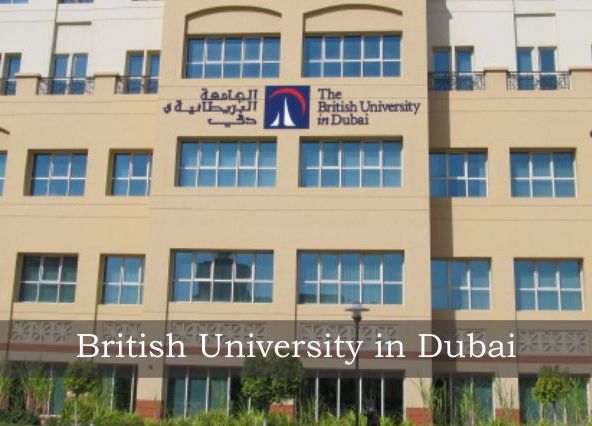The United Arab Emirates is a relatively new and rapidly rising investment market, yet it is also self-contained. As a result, it shares some features with other markets, just like any other independent market. It does, however, have a few distinguishing qualities of its own.
Furthermore, same traits extend to other parts of investment and real estate, such as terminology, documentation, and numerous standards of conduct. Of course, studying the United Arab Emirates’ investment market by reading a single article on the internet is difficult. As a result, we don’t set such lofty goals in the following piece. Instead, we choose a more straightforward method. In addition, because we’re concentrating on the real estate market, we’ll do it in the framework of the Emirate of Dubai.
Title Deed:
When we say “Title Deed,” we’re talking about a document that certifies property or land ownership. Then there are property rights.
The legislation lays forth all of the details about the property that has been purchased. This covers details such as attributes, ownership structure, and the owner’s name. It’s worth noting that Dubai’s mortgage industry is well-developed, and foreigners can take advantage of this. Property rights, for example, are written out in the name of the buyer when purchasing real estate with a mortgage (up to 80% of the purchase price).
The bank, on the other hand, keeps the original document until the borrower has repaid the total loan amount. RERA also checks the legitimacy of the banks’ actions, which aids in the resolution of any potential issues.
Let’s take a closer look at and talk about the various sorts of ownership:
There are only two types of property ownership: leasehold and freehold.
Freehold ownership is the most well-known type of property ownership.
This is the most common form of real estate ownership. To put it another way, the buyer just pays the seller for the property. As a result, the buyer completes the deal and acquires the property in their own name, permanently. As a result, the buyer is free to do anything he or she wishes with the property. So, whether the buyer bought it or inherited it, as long as the transaction was completed correctly, he or she can enjoy all of the additional advantages of exclusive ownership.
The other sort of property ownership, known as leasehold, does not need the purchase of the property. Instead, it entails the acquisition of a long-term lease for the property’s use. Furthermore, based on the precise arrangements with the leaseholder rights, the rights of the person who purchased the leasehold can vary.
Following that, when it comes to a leasehold property, there might be a variety of agreements. A lease period, for example, can extend from 10 to 99 years in some cases, depending on the parties involved. In some cases, the owner of a real estate leasehold may be limited to operating it for the rest of his or her life or for a set amount of money. Alternatively, various improvements to the property’s interior and architecture may be done.
The fundamental distinction between these two types of property ownership is that freehold may only be obtained by acquiring a specific property in one of a limited number of specified freehold regions (today, there are 64 of them).
And, despite the fact that supply is limited, and prices are high, the property will be yours exclusively due to tremendous demand. Leasehold, on the other hand, covers a larger geographic area and is less expensive, but it comes with a responsibility for the property’s original owner.
NOC – “No Objection Certificate”:
The NOC, also known as the No Objection Certificate, is a document that must be obtained from the developer by both the seller and the buyer.
It is difficult to complete a sale and purchase transaction without this piece of documentation. The reason for this is that upon receiving this certificate, the parties involved in the transaction receive confirmation from the developer that they have no claims against the seller or the buyer, that the property is in a saleable condition, that the property account has no maintenance debts to the developer, and that the property owner has no outstanding fines. The NOC can be granted through the internet or using RERA’s mobile app. The electronic and analogue NOCs are both valid for 5 days after they are issued. If the transaction between the parties concerned is not registered during this time, the NOC will have to be re-registered.
DLD stands for Dubai Land Department:
Despite the fact that the DLD has been around since 1960, the Department only obtained its current jurisdiction in the late 2000s and early 2010s. Overall, the organization’s jurisdiction and tasks are based on the legalization of land and real estate purchases and sales. Furthermore, the DLD approves, arranges, and registers all real estate transactions in the Emirate. The Department offers over 160 different services to buyers, sellers, investors, developers, and real estate agents. In addition to RERA, the Department keeps track of and registers “certified” real estate agencies and banks. Later on, we’ll dig a little deeper into the latter.
The DLD is divided into several sections, the most important of which are:
- RERA, as previously stated.
- Centre for Real Estate Investment Management and Promotion (REIMPC).
- The Rental Dispute Settlement Centre is a non-profit organization dedicated to resolve (RDSC).
- DLD Educational Wing, Dubai Real Estate Institute (DREI).
In some ways, the DLD has evolved from a regulator to the Emirate’s primary arbitrator in the real estate market. As a result, this has a substantial impact on the Department’s unique services.
Here’s a quick rundown of a few of them:
- Customer service include anything from property management to confirmation of ownership.
- Reports on real estate transactions, such as regular data on registered sales, appropriated mortgages, property valuation, popular neighbourhoods, and so on.
- Maintenance of real estate – the department assists landlords in gaining the support of reputable management businesses, which includes services such as land and property protection, cleaning, and maintenance. Landlords, developers, investors, and shareholders all benefit from this service, which includes complaint registration and infringement investigation. Requests to review the terms of a contract’s execution, breaches of trust, and any other legal infractions or disputes are also accepted by the DLD.
- Real estate evaluation entails checking for existing or non-existent debts, the presence or absence of any claims or violations, and real estate market data, as well as state-specific data.
- Statistical reports on demand — as the name implies, this service is self-explanatory. It is highly useful for investors who want the most up-to-date information on the market’s present position.
- Education – this includes job options in the local real estate market, such as legal and administrative jobs, investment programmes, and broker registration.
- The Department invests heavily in the development of online investments and commerce in order to give buyers, sellers, developers, and other interested parties with a platform.




